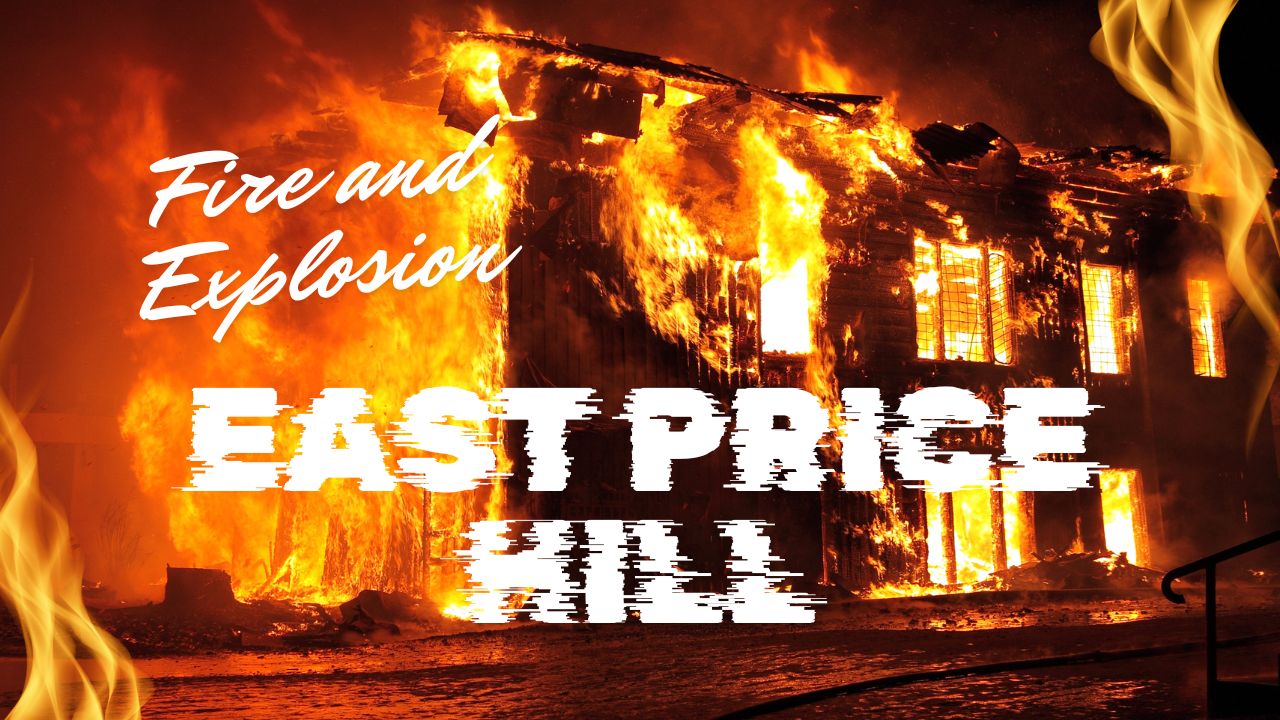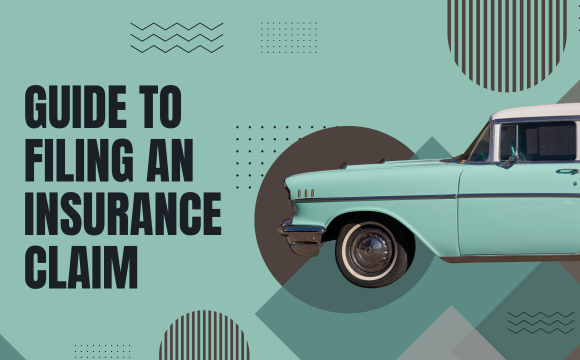Introduction: A Fiery Incident in East Price Hill
On a seemingly normal day in East Price Hill, the unexpected happened — a fire erupted, followed by a dramatic explosion that shook the neighborhood. Reports filtered in; flames leapt skyward, sirens wailed, and smoke billowed like a woolly cloud over the charming homes of this local community. But while some residents stood transfixed by the chaos, others were left with pressing concerns about one critical question: Does my insurance cover the property damage?
In moments of crisis, understanding how your insurance policy operates and what it entails doesn’t just save you financial trouble — it can also help you recover emotionally from the mess that’s left behind. Let’s dive into the details of property damage and insurance coverage.
Understanding Property Damage
When we talk about property damage, we refer to any harm done to material possessions, which can include:
- Homes: The roof over your head, literally.
- Vehicles: Your trusty ride, or as some call it, the “backseat therapist.”
- Personal belongings: Everything from your grandma’s precious vase to your favorite video game console.
The impact of property damage is multifaceted. It’s not just the financial hit; there’s also emotional toll. Imagine losing items that hold sentimental value. It’s like losing a piece of yourself.
The Fire and Explosion: What We Know
The story of this explosion begins with an unfortunate event; a chain reaction of mishaps that left many residents shaken.
- Timeline of Events: It all started shortly before noon, with a small fire that progressed rapidly. Emergency services were alerted, and shortly thereafter, an explosion rocked the area, amplifying chaos in what was already a stressful situation.
- Cause of the Fire: Investigators are still piecing together what led to this tragic incident. Was it an accident, carelessness, or something else entirely? Speculations abound, and community forums are alight with theories.
- Impact on the Community: Local responders rallied quickly, showcasing the incredible spirit of East Price Hill. Neighbors came together, offering shelter, food, and emotional support. It’s moments like these that showcase the resilience of communities facing disasters.
Insurance Basics: What to Know Before You Need It
Insurance can feel like a foreign language, but it’s vital to understand its basics before disasters strike. Here’s what you should know:
- Different Types of Insurance Coverage: Homeowners insurance, renters insurance, and special coverage policies exist for specific needs. Each type provides distinct benefits, so understanding which one fits your situation is crucial.
- Homeowner’s Insurance vs. Renter’s Insurance: Homeowners insurance typically covers your dwelling and its contents, while renters insurance mainly protects personal belongings within a rented space. Don’t think just because you don’t own the property, you’re off the hook!
- The Fine Print: Always read your insurance policy. It’s often where you’ll find what’s covered and what isn’t — and you don’t want to find that out the hard way.
Does Insurance Cover Fire Damage?
Most homeowners and renters insurance policies typically do cover fire damage. However, nuances exist that are essential to grasp:
- Typical Coverage: Most policies cover fire damage to the dwelling and personal belongings. This means that in the unfortunate event of a fire, your insurance should come to the rescue.
- What to Do Immediately After a Fire: If you’re affected, ensure safety first — call emergency services. Afterward, document everything: take pictures, keep receipts, and note the damages. Every detail counts!
- Filing a Claim: The claims process can vary from insurer to insurer, but generally includes notifying your provider, submitting documentation, and possibly meeting with an adjuster to assess damages.
Common Concerns After Property Damage
Facing property damage often leaves homeowners and renters with a host of questions and concerns:
- What if My Insurance Claim is Denied?: Denials can happen for various reasons. If your claim is denied, review the policy for discrepancies and consult an insurance adjuster for clarification.
- Underinsurance: Are you adequately covered? If your policy limits are too low, you could find yourself footing a significant bill when disaster strikes.
- Navigating Emotional Distress: Remember, it’s okay to seek help. Sometimes the emotional scars linger longer than the physical damage. Community resources can provide support, and professional counseling is always an option.
Specific Situations: Additional Coverages to Consider
When tragedy strikes, knowing your coverage limits can be a game changer. Here are some specific coverages that could be beneficial:
- Liability Coverage: Understand who’s responsible if the fire causes damage to your property or others’. This coverage protects you if you’re found liable.
- Supplemental Coverage Options: Explore additional coverages like “loss of use” (which can cover temporary housing) or contents coverage for renters.
- Coverage for Temporary Relocation: If your home is uninhabitable following a fire or explosion, you might need temporary housing. Ensure this is covered, as finding a hotel can add up quickly!
Preventive Measures: Keeping Your Property Safe
While we can’t predict emergencies, we can certainly prepare for them! Here are some fire safety tips every homeowner should follow:
- Fire Safety Tips: Install smoke detectors and check them regularly. Create and practice an evacuation plan — have a meeting spot outside!
- Local Resources for Education: Many fire departments offer free resources or classes for fire safety. Check with your local authority!
- Community Initiatives: Join or start initiatives in your neighborhood aimed at promoting safety. You could organize a community fire drill — why not make it fun and teach everyone at the same time?
Understanding Policy Exclusions
It’s critical to be aware that not everything under the sun is covered:
- Common Exclusions: Items like jewelry, collectibles, and vulnerable electronics may have limits unless specially insured.
- Negligence Nullifying Coverage: If the fire resulted from something negligent (think leaving the stove unattended), your claim could be in jeopardy.
- Questions to Ask Your Agent: Don’t hesitate to sit down with your insurance agent. Ask about exclusions, limits, and anything about the policy that isn’t crystal clear.
The Role of Documentation in Claims
Proper documentation can make or break your insurance claim:
- Importance of Taking Immediate Action: Act quickly to document damage. Time can create ambiguity.
- What to Document: Capture photos, make a list of damaged items, and note any witness accounts. This information can bolster your claim.
- Keeping an Inventory: Periodically update a home inventory of personal belongings. You never know when you’ll need it!
The Claims Process: What to Expect
Understanding the claims process is crucial for a smooth recovery journey:
- Timeline of a Typical Claims Process: Expect initial reviews within a few days but be prepared for longer assessment times depending on the damage extent.
- Insurance Adjusters: These professionals assess the property, so be ready to explain your situation thoroughly. They are crucial to ensuring you get your deserved coverage.
- Effective Communication with Insurers: Tree-treat this like a dance. Be polite but assertive; provide necessary information promptly to keep things moving.
Legal Assistance: When to Seek Help
In some cases, legal counsel becomes invaluable:
- When to Seek Legal Guidance: If disputes arise or claims are denied without reasonable justification, seeking legal help can be your lifeline.
- Finding a Lawyer: Search for someone specializing in insurance claims. A good lawyer can make all the difference in navigating complex issues.
- Understanding Your Rights: Know your rights as a policyholder. You’re entitled to a fair process, and a legal expert can ensure you’re treated fairly.
Community Support: Resources After the Incident
After a disaster, community support can be pivotal:
- Local Charities and Organizations: Groups like the Red Cross often provide immediate assistance — from shelter to essentials.
- Government Resources for Disaster Relief: Don’t overlook government assistance programs that can help with housing or financial support in the aftermath.
- How Neighbors Can Help: Sometimes, a simple meal, a listening ear, or essential supplies from nearby friends can mean a lot to those affected.
The Bigger Picture: Lessons Learned from East Price Hill
Every disaster comes with valuable lessons:
- Emergency Preparedness: Make this a priority! Regularly review your emergency plans and adjust them as needed.
- Fire Drills and Evacuation Plans: Treat fire drills like school — practice makes perfect!
- Encouraging Community Resilience: Talk with your neighbors about safety; knowledge sharing fosters a stronger, more informed community.
Conclusion: Are You Prepared for the Unexpected?
As we wrap up, it’s vital to remember that fire and explosions can happen anywhere and at any time. Understanding your insurance coverage and being prepared can make all the difference when disaster strikes. Take a moment to review your policy, talk to your agent, and ensure you’re ready.
So, let this be a reminder: Instead of “waiting for fire to fall from the sky,” as they say, it’s better to equip ourselves with the right knowledge and tools. After all, you wouldn’t want to be left looking at that charred remains of your belongings without a safety net to catch you!
Frequently Asked Questions
- What should I do first if my property is damaged by fire?
Ensure everyone’s safe, then contact emergency services. After that, document damages, call your insurance, and begin the claims process. - How can I ensure I have adequate coverage for future incidents?
Regularly review your policy, assess your property’s value, and adjust coverage as needed. Don’t hesitate to ask your agent about recommendations. - Is it too late to get insurance after an incident has occurred?
Yes, getting insurance after an incident may be challenging. However, you can typically still obtain coverage for future protection.
Final Thoughts: Humor for Tough Times
As we navigate through the complexities of fire and insurance, let’s not forget: life has its fiery moments, some quite literally! Perhaps invest in that fire extinguisher — you might just end up saving the day or, at least, making it a memorable story to tell at the next block party! Wishing all a safe and fire-free home!



